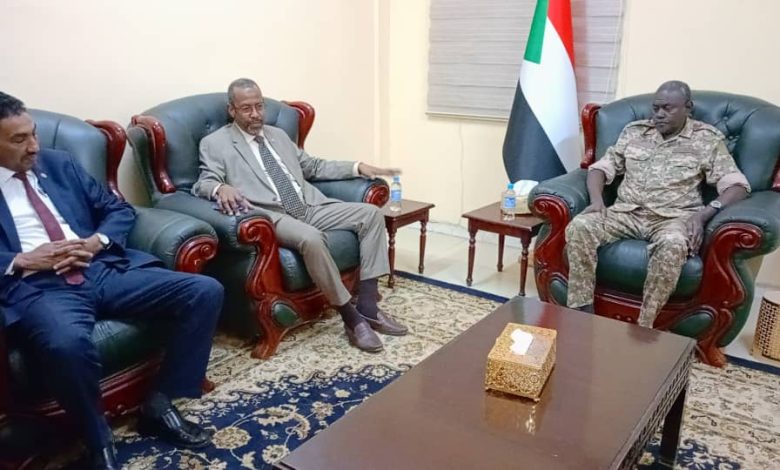Economic
Governor of Khartoum and Nile Bank Agree to Provide Cash and Finance Reconstruction Projects

Sudan Events – Follow-up
On Sunday, the Governor of Khartoum, Ahmed Othman Hamza, met with a delegation from Nile Bank, led by the acting CEO of Nile Bank, Dr. Osama Al-Tayeb, and Hafiz Mohamed Hassan Mukhtar, the manager of the Karari branch. They discussed several topics related to the bank’s services.
The Governor emphasized the importance of expanding the bank’s branches in the state, as it was the first bank to resume its activities in the state, which encouraged other banks to open branches. He highlighted the need to resolve issues faced by customers and called for exceptions for the state in certain matters due to the war, stressing the importance of collective efforts to overcome the challenges during this time.
The meeting also addressed the bank’s contribution to financing projects in the state that help provide resources to enhance services during the war, especially in areas that have been cleared of rebellion. The needs of these areas are increasing as the safe zone expands, including electricity, health services, water, the Ramadan basket, and workers’ basket. Furthermore, the meeting discussed activating public service employees’ accounts at the bank. The Governor stressed the importance of resolving issues related to the availability of cash and the need for flexibility.
On his part, the Secretary-General of the state’s government noted the bank’s improved services and stated that 2025 would be a year of transition to the reconstruction phase, which is a crucial stage. The Director-General of the state’s Ministry of Finance pointed out that the bank had contributed significantly this year to the necessary adjustments. She mentioned that 90,000 employees, of whom 80,000 are active, have accounts linked to national numbers. She stated that by 2025, all employees’ salaries in the state would be paid through Nile Bank.
The acting CEO of Nile Bank, Dr. Osama Al-Tayeb, called for the state’s government to contribute to policies that would support all phases, especially during the reconstruction phase, by financing service projects.



